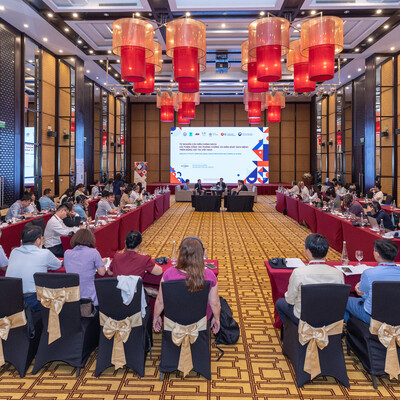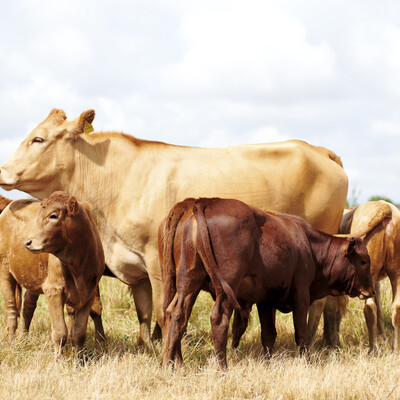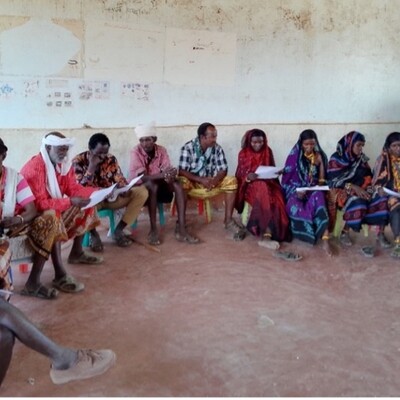
Vietnam animal health experts and stakeholders review FarmVetCare app test results to better tailor it to farmers’ needs
On 20 March 2025, the International Livestock Research Institute (ILRI), in collaboration with the National Institute of Veterinary Research (NIVR), hosted a workshop on the application of information and communication technology (ICT) in animal husbandry management and animal disease surveillance in Vietnam. Organized under the ‘Improving human health through sustainable value chains in human-animal-environmental interactions using ICT in Vietnam’ (ICT4Health) project, one of the objectives of the workshop was a review of the FarmVetCare mobile application developed to enhance disease control, livestock management and production efficiency.

As digital transformation speeds up worldwide, the application of ICT has led to significant advancements in the livestock sector. In Vietnam, digital applications support animal disease surveillance, enable real-time communication between farmers and veterinarians, and contribute to sustainable livestock farming. Timely detection and management of diseases such as African swine fever, foot and mouth disease, lumpy skin disease and zoonotic threats like avian influenza, rabies and leptospirosis are crucial, and digital innovations offer effective solutions to address these challenges.

Under the ICT4Health project (2022–2026), ILRI, NIVR and local partners have developed and piloted the FarmVetCare mobile application to enhance disease surveillance and improve communication between farmers, veterinarians and government authorities. Launched in 2023, the app was developed by AIDKorea, a South Korean ICT company, and has been piloted in Lao Cai and Hoa Binh provinces. To ensure long-term sustainability and smooth operations in Vietnam, the project team plans to transfer the app to a Vietnamese ICT company this year.
Early training sessions in 2024 provided valuable insights from veterinarians and farmers, highlighting the app’s potential and areas for improvement. This feedback emphasized the need for installation guidance, user-friendly features for farmers, better integration of animal disease treatment and livestock production management updates. These suggestions were reviewed during the workshop, serving as a basis for evaluating how effectively the revised app features can address user concerns and identify any remaining gaps for future improvement.
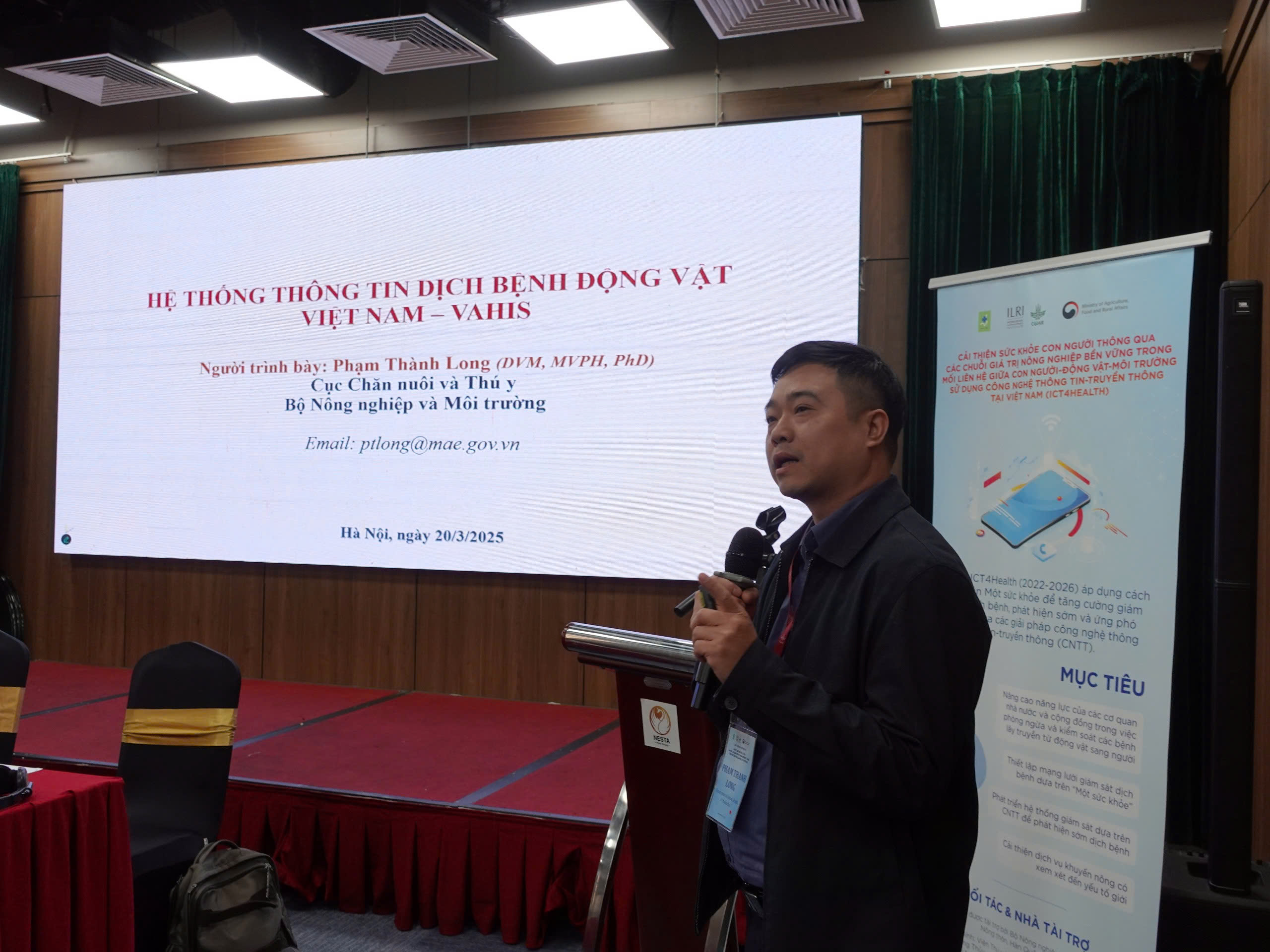
During the workshop, Pham Thanh Long, an epidemiologist at the Department of Animal Health and Production, presented insights on the implementation and impact of the government’s Vietnam Animal Health Information System (VAHIS) and lessons that are improving the platform for better animal health management. He said that FarmVetCare could support animal disease surveillance and livestock production at the farm and commune level.
‘The FarmVetCare application can complement the government’s existing VAHIS system for animal disease reporting and monitoring. We hope ICT applications in livestock production and animal health, like FarmVetCare, will benefit farmers, authorities and the agricultural sector in general in Vietnam,’ said Pham.
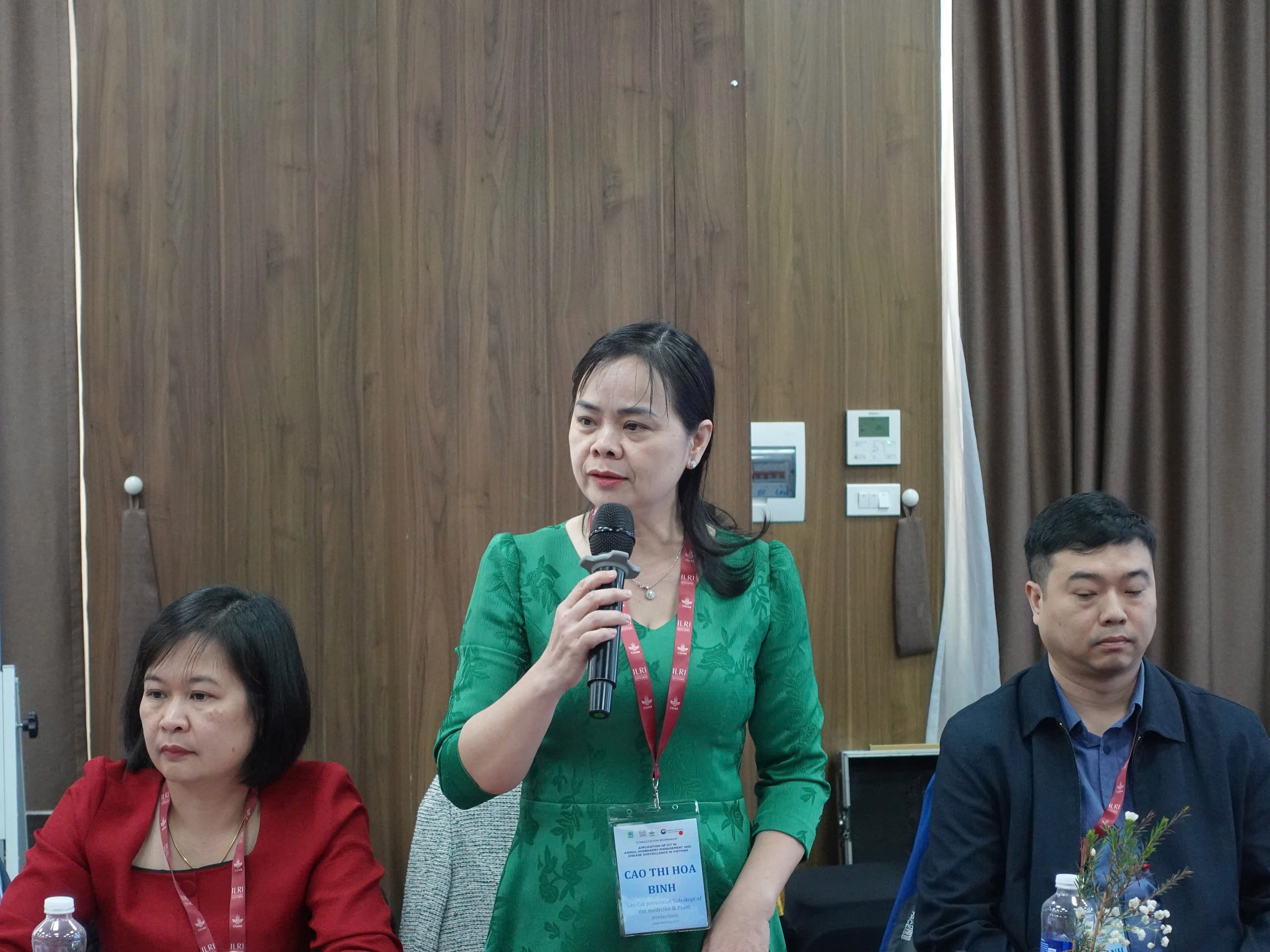
Cao Thi Hoa Binh, director of Lao Cai Sub-department of Veterinary Medicine and Plant Protection, pointed out that as the political system becomes more streamlined with fewer personnel, ICT will play an important role in supporting provision of services to farmers. Lao Cai is set to launch the FarmVetCare app for smartphone users in remote areas to boost agricultural coordination and management.
Tran Thi Tam, a farmer from Hoa Binh Province, said that the app is useful for farmers, but for it to be truly beneficial, it must be tailored to their specific needs, for example, enabling them to quickly connect with local veterinary officers during disease outbreaks. She recommended wider implementation of the app for greater effectiveness.
Reflecting on the pilot outcomes and the workshop feedback, Sinh Dang, a scientist at ILRI and ICT4Health project lead in Vietnam, emphasized the importance of co-designing digital tools with end-users.
‘Farmers and local veterinary officers are at the core of animal health surveillance systems. Their feedback is important to make the FarmVetCare app practical and relevant. We plan to incorporate these suggestions when transferring this app to a Vietnamese company in 2025,’ he said. ‘By building digital tools that respond to real challenges, we hope to enhance disease detection and improve livelihoods through better livestock management.’

The workshop also showcased and discussed other digital technologies related to animal husbandry, including the TE-FOOD blockchain system, in use in Dong Nai Province since 2018, for real-time data collection for the government. Dao Ha Trung, chairman of TE-FOOD Company, said the AI-powered system enables direct reporting of livestock health, supports supply chain traceability and ensures rapid response to food safety risks. With 20 million QR codes and 24-hour technical support, it integrates the health and statistical sectors, and plans are underway to expand it to Jordan and Laos by 2026.
Meanwhile, Dang Huu Anh, a lecturer from Vietnam National University of Agriculture, highlighted AI’s impact on poultry disease diagnostics, showcasing an improved Vietnamese diagnostic app and a new QR-based AI tool for rapid disease identification. International experts from Indonesia Thailand and the UK also shared insights on ICT innovations in animal health management, providing regional and global perspectives.
Nguyen Kim Phuc, deputy director at the Department of Digital Transformation, emphasized the need for a centralized data warehouse to ensure that information is standardized and regularly updated, preventing failures seen in past ICT projects due to poor data maintenance.
The participants explored the opportunities and challenges of using digital tools for animal disease surveillance and livestock production. The feedback from farmers, veterinary authorities, researchers and IT developers will be used to ensure the FarmVetCare app meets user needs before broader implementation. The ICT4Health project is also exploring how incentives such as compensation schemes, improved productivity or better farm management tools could overcome farmers’ reluctance to report disease outbreaks to improve data accuracy.
The event brought together over 50 delegates from ILRI, NIVR, the Department of Animal Health and Production, Department of Digital Transformation, local partners and farmers from Lao Cai, Hoa Binh and Dong Nai provinces, private sector companies, research institutes, universities and development organizations. Also present were international partners from South Korea (Animal Industry Data Korea-AIDKorea and Chung Nam University), Indonesia (Directorate General of Livestock and Animal Health), Sweden (Swedish Veterinary Agency), Thailand (Participatory One Health Digital Disease Detection - PODD Chiang Mai) and the United Kingdom (Livetec Systems Ltd).
The project ICT4Health is funded by South Korea’s Ministry of Agriculture, Food and Rural Affairs (MAFRA).
Further reading:
Identifying priority animal and zoonotic diseases in northwest Vietnam for future action








